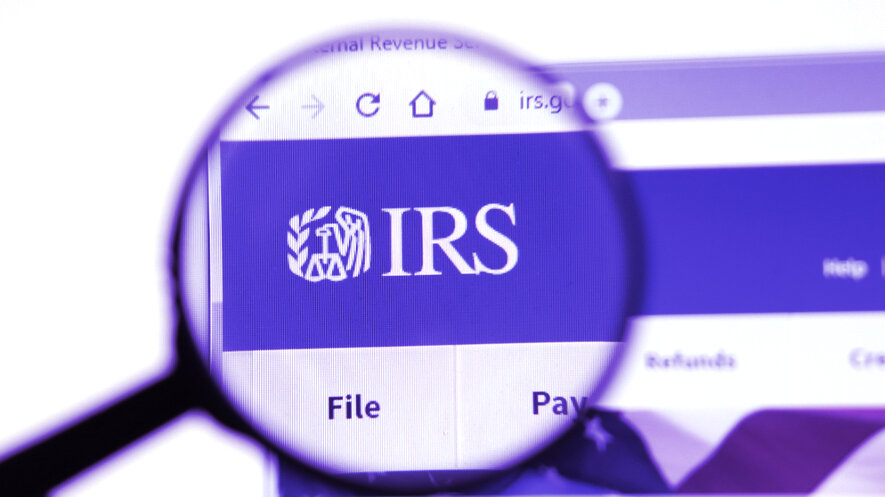About the author
Attorney Nicholas Mowbray’s practice focuses on U.S. federal income tax matters, with an emphasis on international tax and the taxation of financial products. The views expressed here are his own and don’t necessarily represent those of Decrypt.
It’s no secret the IRS is on the hunt for new sources of tax revenue—and that the agency has turned its attention to taxpayers who under-report crypto-related transactions. Indeed, the IRS recently launched “Operation Hidden Treasure,” a partnership between its Office of Fraud Enforcement and Criminal Investigation Division that seeks to uncover crypto tax avoidance.
This operation coincides with a push by the agency to obtain information from cryptocurrency exchanges for prior tax years, and the enactment by Congress of new reporting requirements for “digital asset” brokers that are similar to those that apply to brokers of stocks and bonds.
Unfortunately, while the IRS has made clear it plans to rake in more revenue from crypto-related transactions, the agency and Congress have provided taxpayers with only limited guidance about how to report (and pay tax) on crypto-related transactions. This has left many well-meaning tax filers struggling to understand the proper tax treatment of numerous crypto-related transactions, and worrying if they will face costly IRS examinations, penalties, or even prosecution if they under-report or fail to report taxable income from crypto-related transactions.
The IRS’s enforcement efforts against cryptocurrency owners have expanded significantly over the past few years. These efforts include equipping agents with training and tools to find and trace cryptocurrency transactions, plus the use of what are known as “John Doe summonses” to compel cryptocurrency exchanges to produce account holder information and find unreported crypto-related assets and transactions.
The purpose of the training is to provide agents and compliance personnel with exposure to crypto-related assets and to teach them how to uncover and analyze a taxpayer’s crypto-related transactions. The IRS’s tools include cutting-edge programs that allow a user to detect, trace, and uncover crypto-related assets. Additionally, the tools permit tracking cross-chain activities, not just a single blockchain at a time, which allows the IRS to more efficiently and thoroughly analyze these transactions.
The so-called John Doe summonses meanwhile have produced a boon of information for the IRS, including 85,000 accounts from exchanges in 2021 alone. These documents require cryptocurrency exchanges to produce information for taxpayers who conducted transactions above a certain threshold, usually around $20,000. Meanwhile, the summonses are focused not just on 2021 but earlier tax years that may still be open to audits—specifically, 2018 through 2020.
The IRS uses the information obtained from these summonses to identify and contact taxpayers who are likely to have unreported income. A previous round of summonses issued to Coinbase Inc., for example, produced 10,000 letters reminding taxpayers of their reporting responsibilities. The IRS estimates that these letters resulted in 577 amended income tax returns and an additional $15 million in assessed liabilities.
Taxpayers thus face an aggressive and well-equipped IRS that’s training personnel to scrutinize taxpayers’ crypto-related transactions. Meanwhile, they also face the obligation, applicable to every taxpayer, to swear, under “penalties of perjury,” that their returns are true, correct, and complete.
Given the unique issues presented by crypto-related assets, taxpayers should seek out CPAs and legal counsel who have experience in crypto-related transactions and can competently advise them about their income tax-filing responsibilities and reporting positions. Taxpayers who are audited by the IRS and found to have under-reported or misreported their taxable income from crypto-related transactions could incur increased liabilities, interest, penalties, and in severe cases where a taxpayer acted willfully, criminal charges or fines.
Taxpayers who engage in crypto-related transactions are well advised to consider their options and determine whether their existing advisers are well positioned to guide them through the challenging task of complying with their tax filing and reporting obligations, and hopefully, avoid costly IRS examinations and penalties.
The best of Decrypt straight to your inbox.
Get the top stories curated daily, weekly roundups & deep dives straight to your inbox.
Source: https://decrypt.co/97058/the-irss-operation-hidden-treasure-what-it-means-for-crypto-holders



